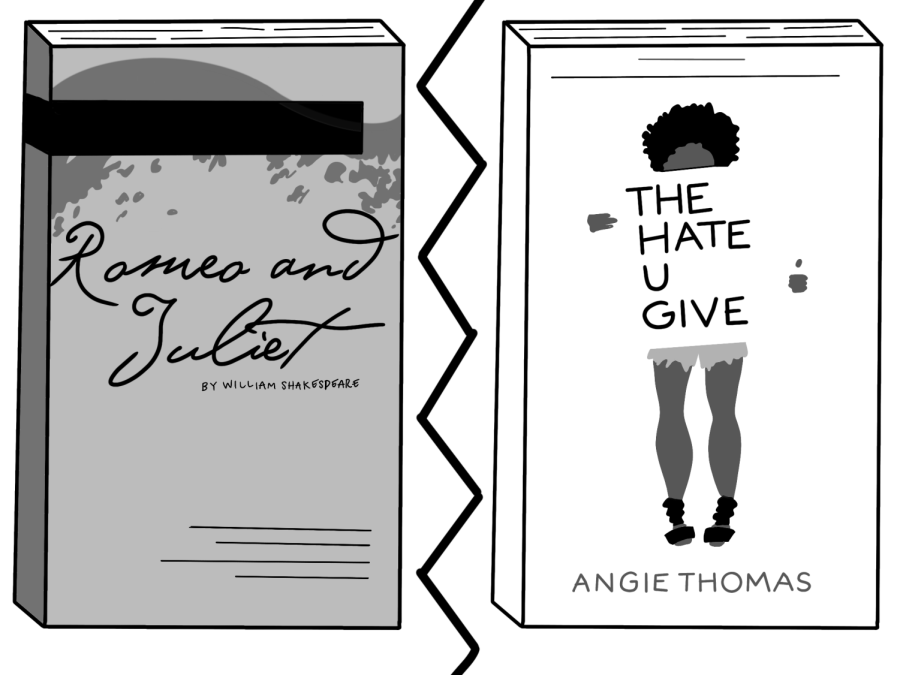A&E: ‘Is that serving our students well?’: English teachers reflect on contemporary v. classic novels
The SCHS English department is moving away from classics towards a more inclusive curriculum.
In recent years, there has been a divergence between the classical and the contemporary era of literature. At a certain point, the oeuvre of the older generations dominated the classrooms. Now, new elements of the contemporary age of literature are filtering into schools.
According to English teacher Sara Silverman, most of the books taught at SCHS were written by traditional authors years ago.
“There is value in understanding how English has changed over time, so there’s value in studying something like Shakespeare still,” Silverman said. “However, most of the (literary) canon is old dead white guys.”
Part of the value in classics is due to the lack of books for younger students before the 21st century. SCHS librarian, Seanna Shelby, believes that although Young Adult novels have made their uprisings, the English curriculum is remaining focused on the classics.
“The last twenty year span – there weren’t really books being written for teenagers. YA did not exist until much longer ago than that,” Shelby said. “The books that were a part of the English curriculum were written intending for an adult audience, and they have been used in classrooms in order to teach skills because English is a skills based subject.”
This lack of diversity in classic novels is troubling for English teacher Kate Rossner, whose experiences show her that students are not being represented by the books that are taught in the curriculum.
“It makes me sad when a senior comes up to me and says, ‘This is the first time that I have ever seen someone like myself in a book that I have read,’” Rossner said. “This breaks my heart, and I don’t think that students should have to wait until senior year to have that experience.”
According to junior Aminah Hedges, teachers need to focus on making sure that the books they teach in the classroom are relevant to all students.
“A lot of the benefits of language arts curriculums are that they try to be beyond comprehension and critical thinking skills that are life lessons that are relevant to students,” Hedges said. “And you are more likely to get those relevant lessons from contemporary (books) because they specifically respond to the modern day.”
There are factors, however, preventing teachers from updating the English curriculum with contemporary books, such as the political climate regarding books covering topics concerning race and sexism.
“The current climate in the United States makes this a very dicey conversation to have because teachers are literally being attacked all over the country over their book choices,” Silverman said. “In that climate, I can tell you for one, that I don’t really feel like pushing the envelope this year.”
Even if this boundary is overcome, Rossner and others believe that certain books are irreplaceable and only evolve into greater points of relevance.
“I don’t believe that literature is a set-in-stone kind of thing. There is no law that governs it. All it is is habit and tradition,” Rossner said. “I believe that it is our responsibility to constantly push back upon that and say, ‘Is that serving our students well?’”
Regardless of the debates surrounding the focus of literary eras in the classroom, most agree that throughout the periods of literary history, there is genius everywhere.
“There are lots of amazing books that were written long ago, but I also think it important for us to recognize that there are lots of amazing books being written right now,” Shelby said.


